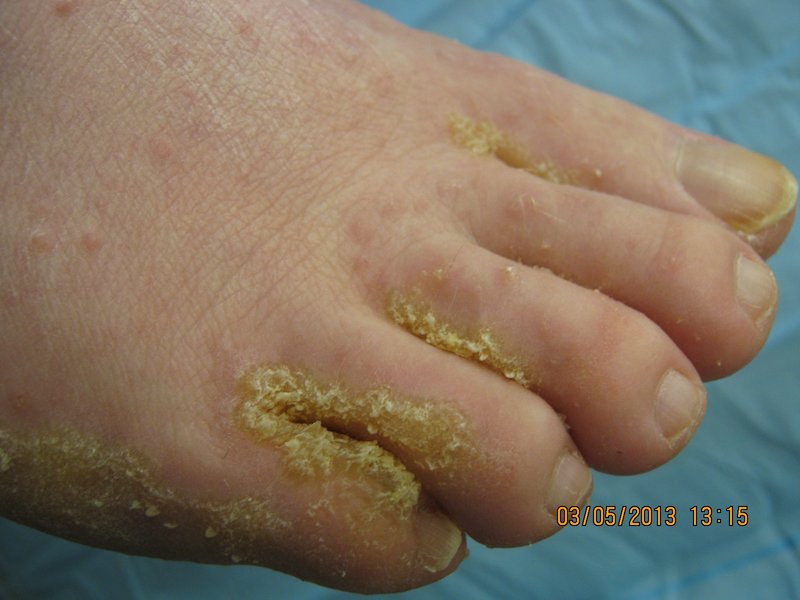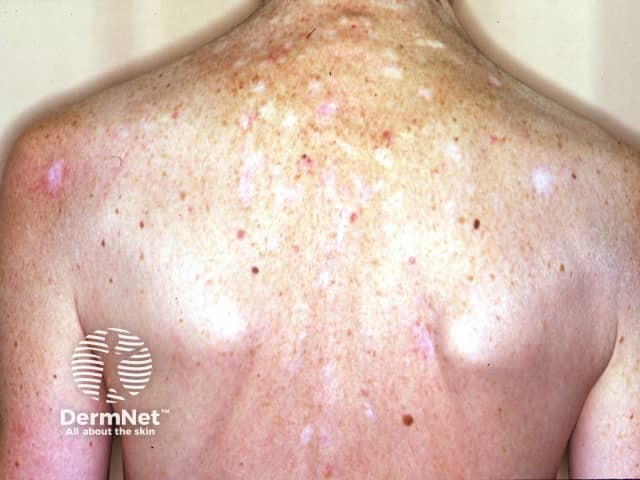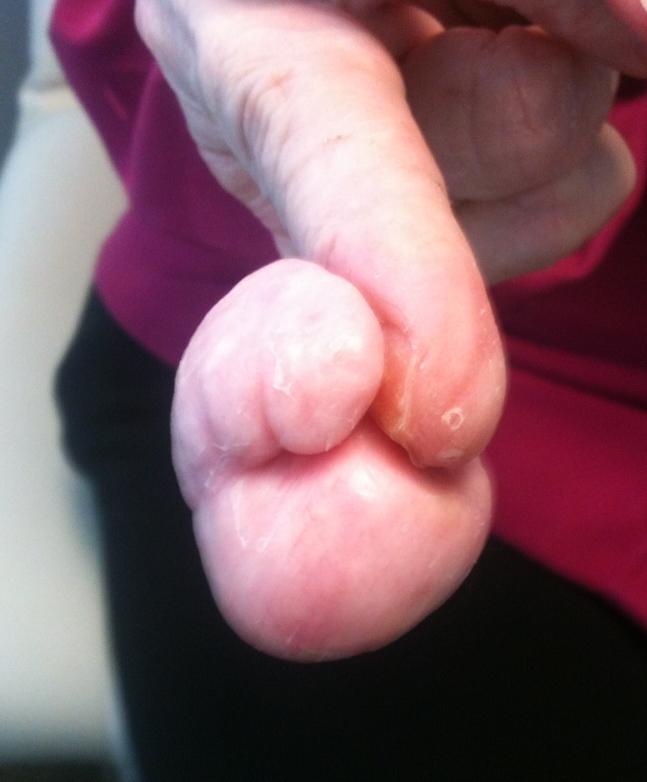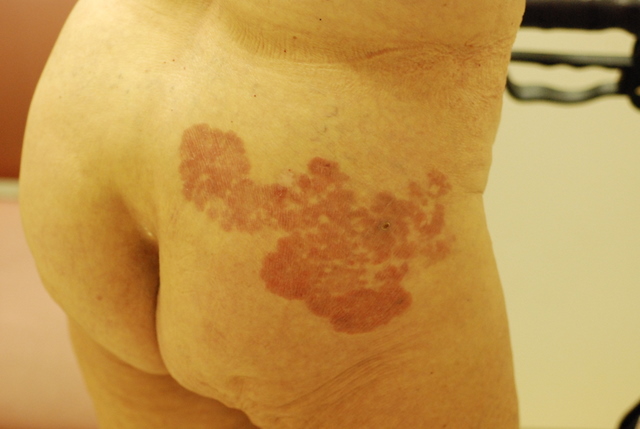Presenter: James Yousif DO, Brandon Yousif
Dermatology Program: MSUCOM/Lakeland Regional Medical Center
Program Director: Mark A. Kuriata DO FAOCD
Submitted on: November 3, 2013
CHIEF COMPLAINT: Thickening of the skin on both bottoms of the feet and between the toes
CLINICAL HISTORY: A 50-year-old Caucasian female presented with a ten-year history of thickening of the skin on both bottoms of the feet and between the toes. This eruption was persistent in nature and was associated with significant pain with ambulation and pruritus. A review of systems was also positive for persistent numbness at the base of the digits of her feet. Prior treatment included the use of topical corticosteroid cream for the cutaneous eruption and gabapentin for the associated neuropathy, but both proved ineffective in providing symptomatic relief. Past medical history was positive for type II diabetes mellitus and dyslipidemia. No remarkable dermatologic history was noted, and family history was positive for a paternal grandfather with malignant melanoma.
PHYSICAL EXAM:
Marked scaling with coalescing, hyperkeratotic papules, and plaques in a serpiginous, moccasin distribution was noted on the dorsal and lateral surfaces of the bilateral feet with associated interdigital maceration. In addition, scaling of the proximal palms and notching of the fingernails was noted. Lip crusting and mild cobblestoning of the anterior hard palate was also evident.
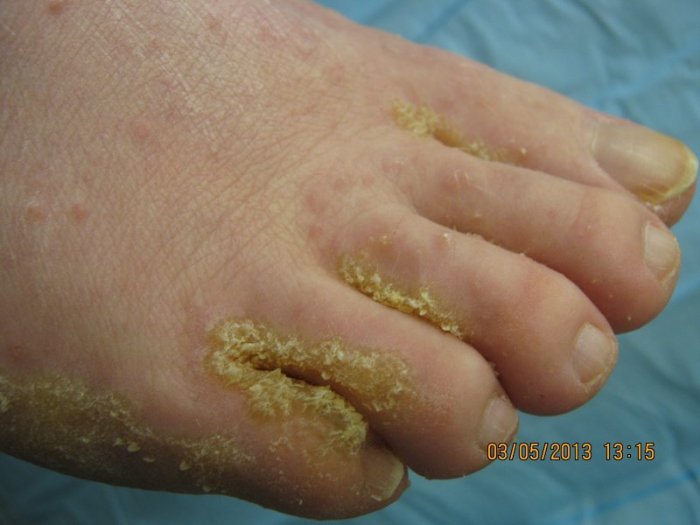
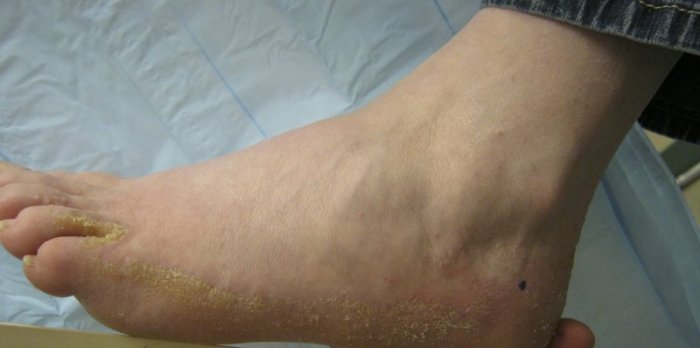
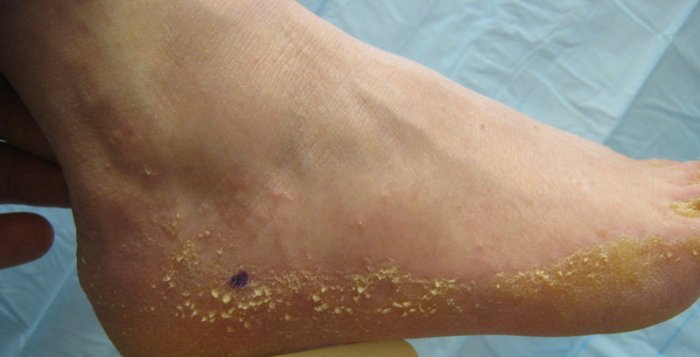
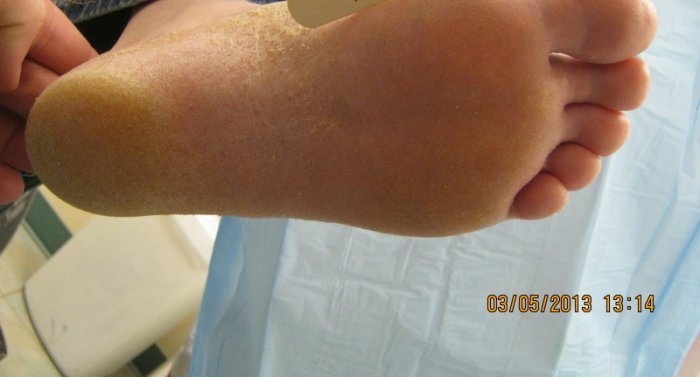
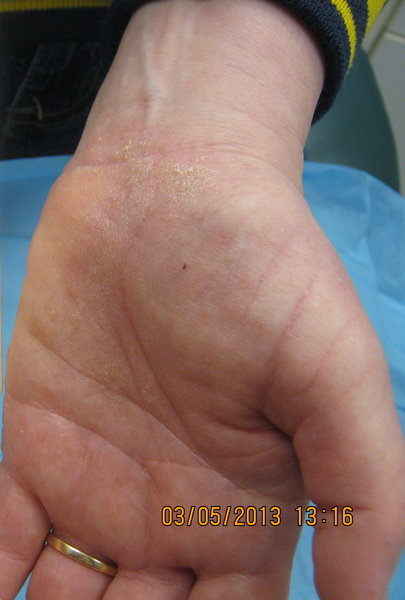
LABORATORY TESTS: N/A
DERMATOHISTOPATHOLOGY:
Punch biopsies of the right and left lateral heel were performed and revealed suprabasilar acantholysis with focal dyskeratosis and mild perivascular lymphocytic inflammation. Acantholytic changes also involved associated follicular structures. PAS stains were negative for fungal components.
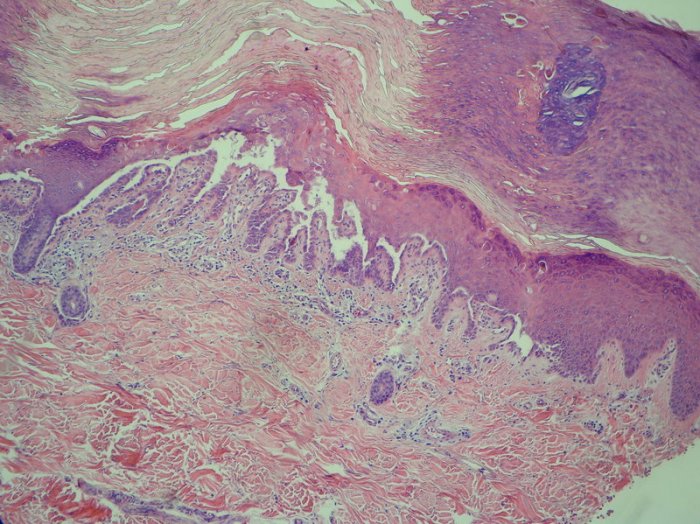
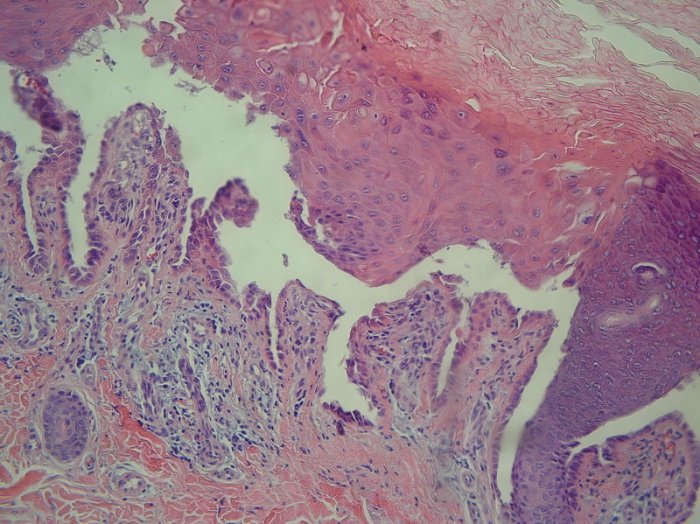
DIFFERENTIAL DIAGNOSIS:
1. Darier’s Disease
2. Tinea Infection
3. Seborrheic Dermatitis
4. Grover’s Disease

